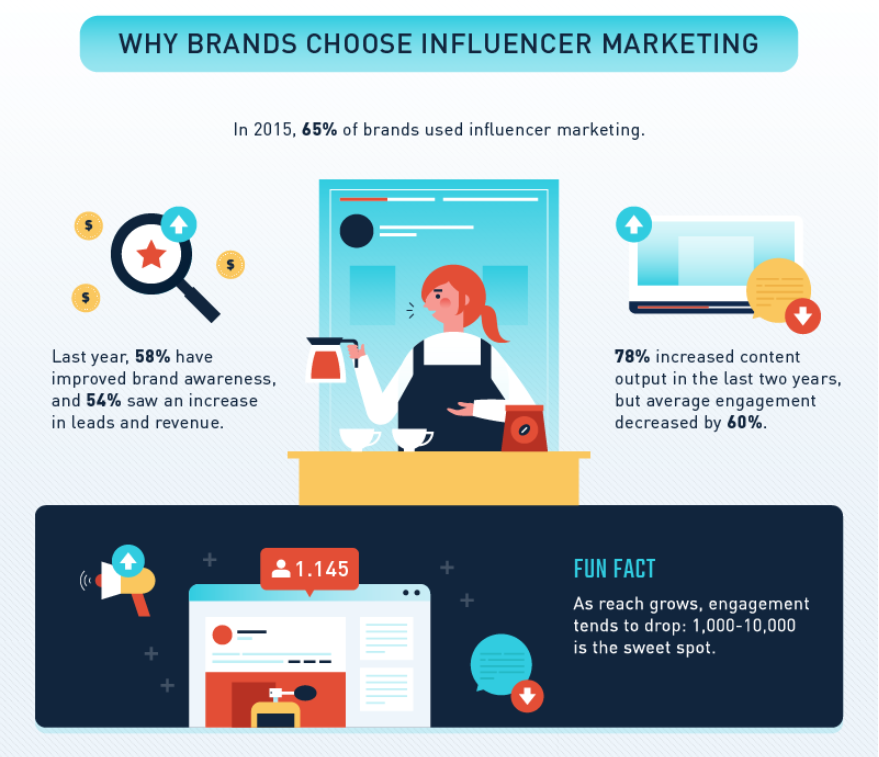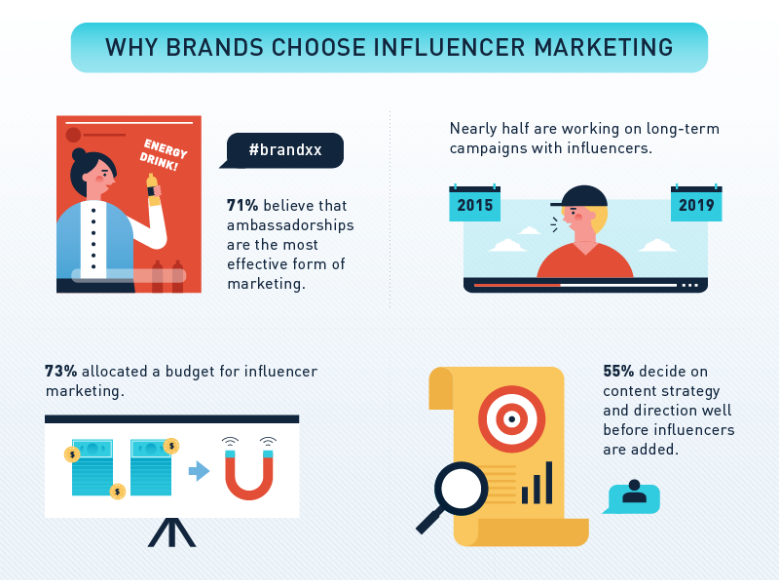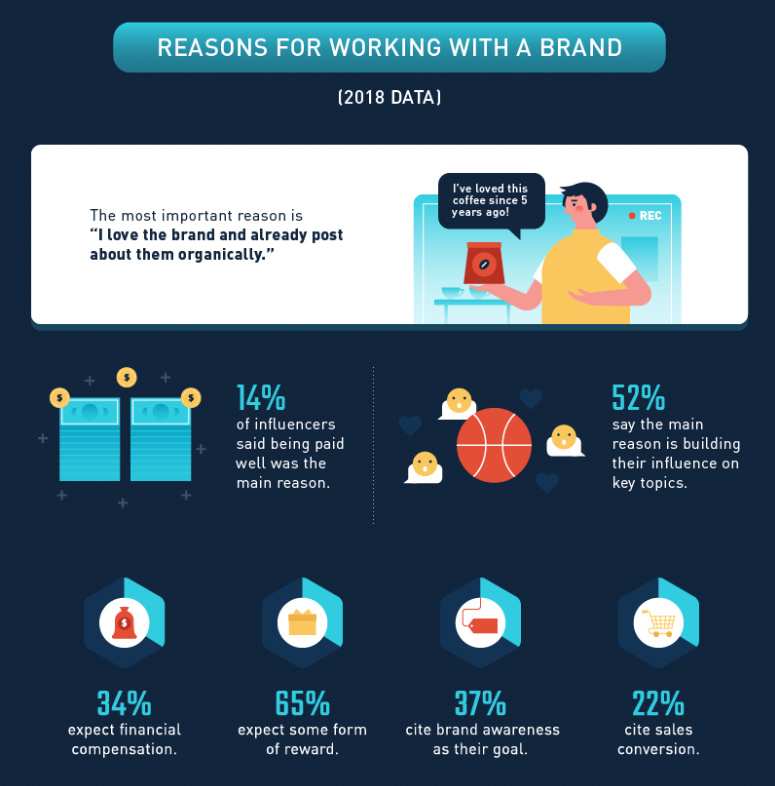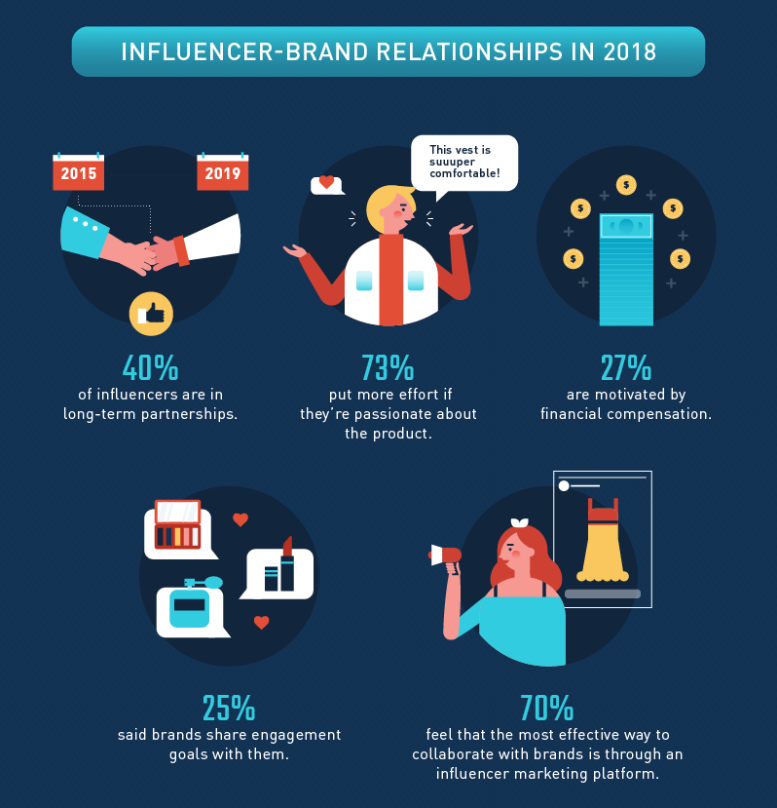Influencer marketing has taken the marketing industry by storm over the past few years and the interest in this marketing approach continues to grow. In fact, the number of searches for “Influencer Marketing” on Google has increased by 1500% over the last three years.
In this post, we’re going to examine why influencer marketing is such a hit with marketers and influencers alike.
Isn’t This Just Like a Celebrity Endorsement?
In principle, an influencer is a type of celebrity. The difference, however, is an influencer’s audience sees them as an authentic, relatable person. After all, we all get a little starstruck when it comes to our favorite celebs.
- Advertisement -
That said, we understand that celebrity endorsements are driven by monetary gain rather than actual use. When it comes to influencers on the other hand, due to the relatability factor, we’re more likely to believe what they say and gauge their opinion as unbiased. As a result, influencer marketing could prove more successful for your brand.
From a Brand’s Perspective

What are the Benefits for Brands?
For marketers, there are quite a few benefits to hiring influencers. These are:
- Influencers build a relationship with their followers while stars live their lives one step removed from the general public. Influencers are a lot more accessible and relatable; the ROI on an influencer marketing campaign is typically 11 times the standard ROI.
- It’s an effective way to increase your reach fast.
- It’s easier to match an influencer to your brand’s target market.
- 81% of marketers judge this to be an effective form of marketing.
- It can be a cost-effective form of marketing. Depending on the person you’re working with, you might be able to come up with alternatives to paying a flat fee. Some of the smaller influencers might, for example, work for free products.
- The costs, according to Forbes, are typically around $1,000 per 100,000 followers. This sliding scale can make it more affordable for brands.
How Do Brands Decide to Work in This Field?
There have been numerous studies that show that this type of marketing is effective. Perhaps the idea has been suggested by the marketing team, or maybe they’ve found someone online that they think would be a good fit.
Besides which, the numbers can be compelling.
Around 54% of marketers saw an increase in revenue and around 58% saw better brand recognition after involving an influence marketer.
What Expectations Do Brands Have?
That depends on the brand’s goals for each campaign. Brands might expect:
- More leads and sales – 74% of brands expect better sales conversions.
- Better brand recognition – 78% of brands expect campaigns to improve brand awareness.
- An improved brand image

They’ll also expect the influencer to stay on script.
As a representative for the brand, the influencer will be required to act in a way that resonates with the brand’s values. A brand wouldn’t want to be perceived in a negative way as a result of being associated with an influencer. If the influencer gets into the press for the wrong reasons, the brand will likely drop them.
Brands will also expect to see some measurable results so that they can assess the overall progress and success of the campaign.
From an Influencer’s Perspective
What are the Benefits for Influencers?
For the influencer, there are many benefits to being associated with a brand:
- The top reason that influencers choose to promote a brand is that they already use the brand’s products and services and love using them.
- They could earn a living doing what they love. That said, only 27% of influencers are in it solely for the money.
- They’re likely to receive free merchandise.
- The association with a particular company could help them improve their own brand image.
- They have an opportunity to offer something of value to their audience. If you’re running a giveaway through the channel, for example, the influencer’s audience scores. This helps them build their influence further.

How Do Influencers Decide to Work in This Field?
From the influencer’s side of things, it’s perhaps a little simpler.
In many cases, they’ve managed to build a large following because they’re passionate about the topics that they’re highlighting. They may have started their journey with the aim of generating income this way, or they could be cashing in on their unexpected celebrity status.
What Expectations Do Influencers Have?
That will depend on what the agreement is. Most influencers would prefer to be paid cash for promoting a brand, but some are fine with getting freebies instead. Generally speaking, most people set out with the idea of promoting brands they believe in.
At the very least, influencers prefer to collaborate with brands with values similar to their own—it’s unlikely you’ll find a vegan promoting the meat products.

Most influencers expect a more long-term arrangement to be put in place if a campaign proves successful.
Final Notes
There are benefits for both parties in these influencer-brand relationships. It’s an efficient, cost-effective way of promoting a product or service for brands, which, at the same time, provides the influencer a source of income and helps them to give their followers something of value.








